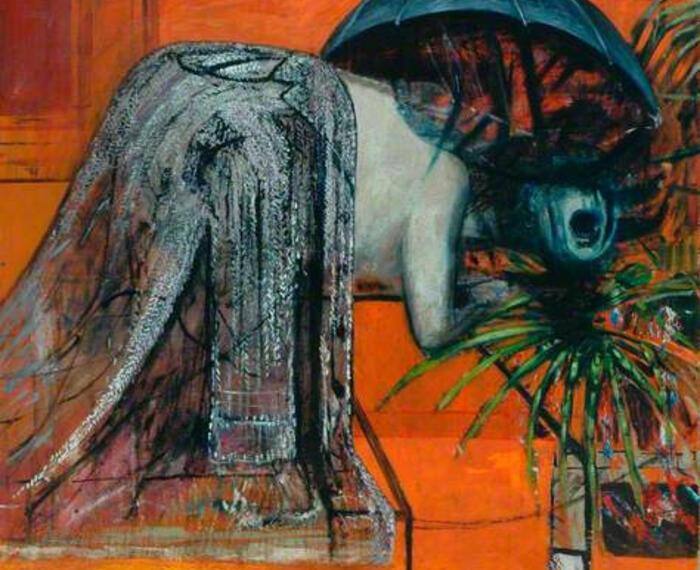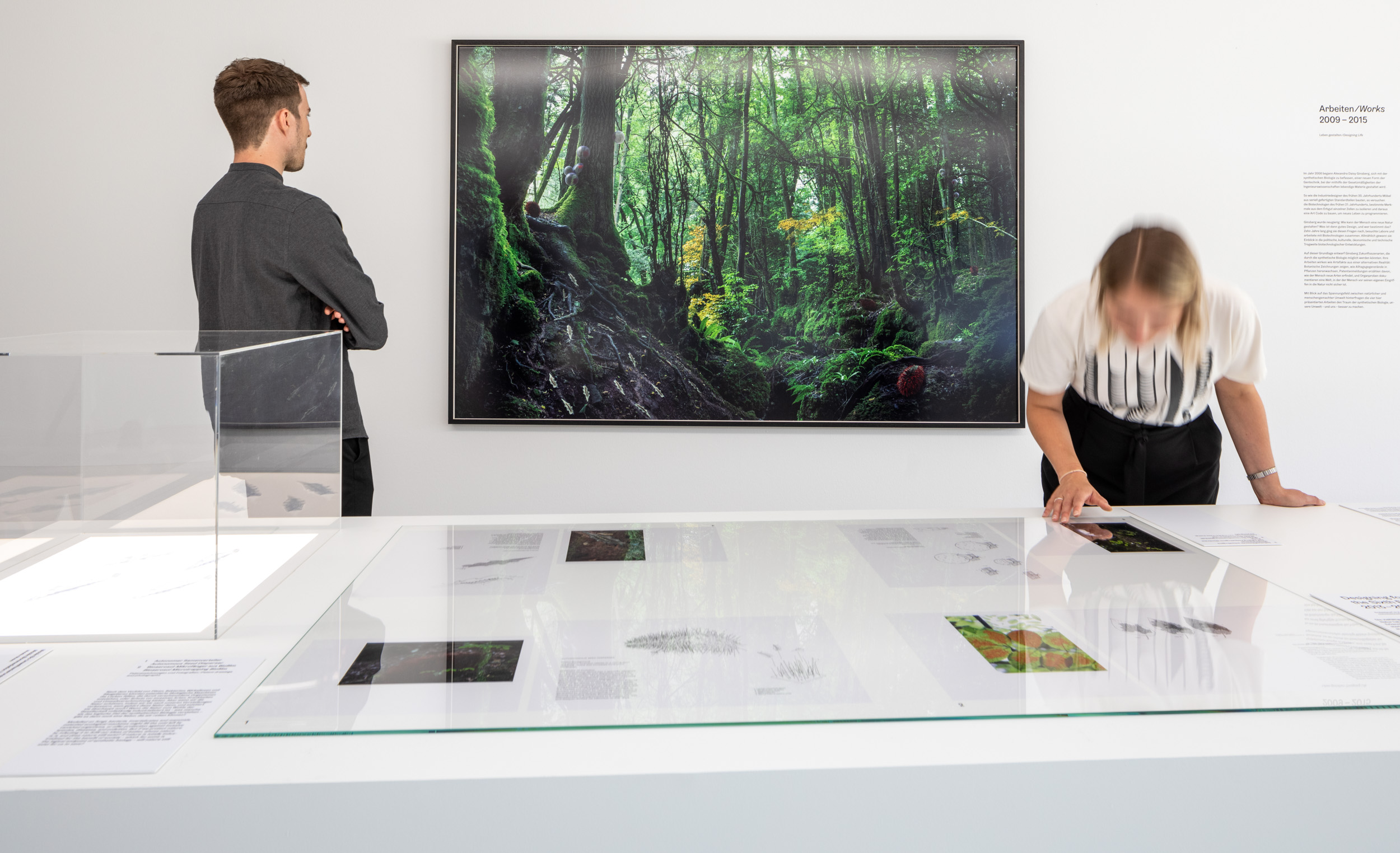


Better Nature Exhibition by Alexandra Daisy Ginsberg at Vitra Design Museum. Photo: © Vitra Design Museum, Bettina Matthiesen
Alexandra Daisy Ginsberg’s work is steeped in beguiling fantasy: a recently extinct species of rhino revived, informed by developments in AI, long extinct plants resurrected using synthetic biology and the invention of new species that could save our ecosystems. On the surface, they are utopic, but Ginsberg’s sense of irony and the uncanny address the human propensity to be seduced by solutions, the tendency to put a plaster on a gaping wound.
Ginsberg is an artist and writer experimenting with technologies – especially the design of living matter. Working at the intersection of tech, science, art and design, her practice engages with techno-utopian promises. A common talking point of tech billionaires has become the potential colonisation of Mars. The Wilding of Mars (2019) takes a critical look at this idea by imagining the planet populated only with Earth plants that flourish over millennia in a simulation that can be viewed over human hours. It has the voyeurism of the livestreams that have become ubiquitous during quarantine, employing a familiar mode to highlight the eeriness of human encroachment on barren landscape.
An earlier work, Designing for the Sixth Extinction (2013) envisages a cure for the destructive impact of the Anthropocene. It shows a world where nature is industrialised, living creatures have been created to repair our damaged ecosystems; organisms that can treat tree infections, high soil acid and disperse seeds. A computer-generated image shows these strange creatures populating a lush, green forest in a captivating vision of the future. There are also models, prints and fictional patent applications making it clear that these organisms are products. Ginsberg juxtaposes optimistic solutionism with troubling questions about production, profits and ethics.
While these works look far into the future and are, beyond our current capabilities, Resurrecting the Sublime (2019) employs technology available today to resurrect the smell of long extinct flowers. Ginsberg collaborated with Christina Agapakis, creative director of biotech company Ginkgo Bioworks and smell researcher and artist Sissel Tolaas, using DNA extracted from the specimens of three flowers to reconstruct an approximation of their smells. The flowers became extinct due to the colonisation and exploitation of their natural habitats. The Hibiscadelphus wilderianus, indigenous to Maui, Hawaii went extinct in 1912., The Orbexilum stipulatum was last seen in 1881 on Rock Island in the Ohio River and the ‘Leucadendron grandiflorum (Salisb.) R. Br.’ was last seen in London in 1805 after its natural habitat in Cape Town, South Africa was already lost. The work is a vitrine containing rocks and a soundscape recreating the plants’ habitat and the flowers’ smells. Entering the space, the sparse presence of these elements creates a sense of loss rather than any feeling of return or resurrection.
While the works all revel in the incredible potential of science, design and technology, they also problematise the notion that they can provide adequate solutions to issues that are social and political in nature. As multiple catastrophes (economic, social, ecological) begin to close in, Ginsberg’s work asserts that these are not unrelated crises but part of a system of exploitation that have led to our current predicament and the solution isn’t always something you can buy.
Alexandra Daisy Ginsberg (b.1982) lives and works in London. Recent exhibitions include Royal Academy, London; Philadelphia Museum of Art; Barbican Centre, London (all 2019).
Current shows: Apocalypse – End Without End, Natural History Museum, Bern, Switzerland; What If... On Utopia in Art, Architecture and Design, Neues Museum, Nuremberg, Germany; Survival of the Fittest, Kunstpalais Erlangen, Germany; and AI: More than Human, Groningen Forum, Groningen, Netherlands.
Upcoming shows include And Say the Animal Responded? at FACT Liverpool and the Venice Architecture Biennale 2021. Daisy is also working on a major new commission for the Eden Project, opening in 2021.